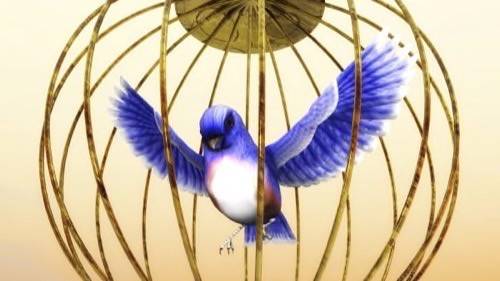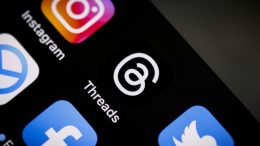
This may have been the day that IBM actually started to look desperate.
In an update to its S-1 filing prior to its initial public offering some time this week, Twitter somewhat casually revealed that IBM has notified the social media company that it is infringing on three of IBM’s patents.
The nugget of information was buried deep in the S-1 form’s Risk Factors section, one of the required tools to give investors a realistic look at the potential value of Twitter as a company.
From time to time we receive claims from third parties which allege that we have infringed upon their intellectual property rights. In this regard, we recently received a letter from International Business Machines Corporation, or IBM, alleging that we infringe on at least three U.S. patents held by IBM, and inviting us to negotiate a business resolution of the allegations. The three patents specifically identified by IBM in the letter were U.S. Patent No. 6,957,224: Efficient retrieval of uniform resource locators, U.S. Patent No. 7,072,849: Method for presenting advertising in an interactive service and U.S. Patent No. 7,099,862: Programmatic discovery of common contacts.
It seems clear that, for now, patent discussion is just that—a discussion, not a full-blown lawsuit. The invitation from IBM to negotiate a business resolution is a clear sign that IBM just wants some licensing fees for these patents. How much, of course, remains to be seen. But the mention within Twitter’s S-1 would seem to indicate that this communication has some significance.
Twitter is holding its cards close here, taking a strong but neutral stance on what it wants to do.
Based upon our preliminary review of these patents, we believe we have meritorious defenses to IBM’s allegations, although there can be no assurance that we will be successful in defending against these allegations or reaching a business resolution that is satisfactory to us.
Slipping mention of IBM’s letter into its S-1 filing was a bit cheeky on the part of Twitter. Normally these kinds of patent discussions are kept under wraps with non-disclosure agreements and other legal tools that keep any parties involved from letting the outside world what’s going on. In 2011, for instance, Microsoft wouldn’t even tell Barnes and Noble what patents the bookseller was supposedly violating until they signed an NDA.
That IBM apparently did not ask for similar gag restrictions of Twitter is telling, since they apparently want to keep things above board. But why approach Twitter in the first place? IBM dwarfs Twitter in size and revenue, and even if Twitter is violating Big Blue’s patents, it would seem like small potatoes for IBM to stick their hands into Twitter’s business.
See also: Oracle Claims Second-Largest Software Company Title
But IBM has seen better days, and it is not hard to make the leap that the company is seeking alternative forms of software licensing revenue, particularly after Oracle’s recent spin that IBM has been knocked from the number-two software company spot. Upping its patent licensing operations would be one way of doing that.
This would seem to be desperation on the part of IBM, but for all we know, it could be business as usual. Again, many times these kinds of patent licensing deals are handled behind closed doors with little fanfare. Unless you’re Microsoft, trying to endlessly score points against Linux- and Android-based products.
It’s an interesting glimpse into the vast scope of patent litigation, though, a semi-shadowy world where millions of dollars can change hands with just a conversation between lawyers.
Image courtesy of Shutterstock.





















